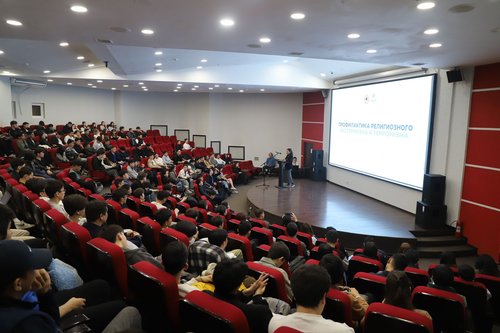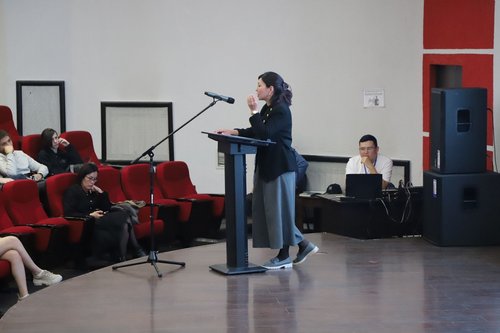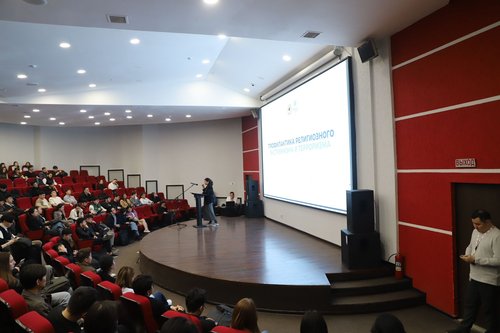The problem of prevention of extremism and terrorism was devoted to the meeting of students with a member of the awareness-raising group, candidate of philosophical sciences Zhanna Kantarbayeva, organized by the Department of Youth Policy in cooperation with the Department of Religious Affairs of Almaty.
During the lecture, the expert noted the global nature of the rapid spread of extremism and terrorism, including religious extremism, the growing involvement of young people in destructive movements and the active use of modern communication technologies for this purpose. She told the students in detail about the key features of religious extremist movements, methods of spreading their ideas, the interrelation of national and religious values. The lecturer paid special attention to the fact that the activities of various radical movements and associations pose a threat to the national security of the state, their adherents are trying to draw young people into illegal activities, actively using social networks and Internet resources for this purpose.
The meeting discussed ways to counteract recruitment in social networks, the need to analyze and critically analyze information on the Internet. The expert recommended students to get information on religious issues from official sources, to follow the rules of safe Internet, not to subscribe to dubious groups. She also noted that in case of necessity it is always possible to apply for explanations to the Center for the Study of Religious Problems.
The lecturer reminded the students that the system of education and upbringing is separate from religion and is secular in nature. Therefore, on the territory and in the buildings of educational organizations, except for religious ones, it is not allowed to conduct divine services, religious rites, ceremonies and meetings, as well as to carry out missionary activities.
The students were also informed that the legislation of the Republic of Kazakhstan stipulates criminal liability for propaganda of terrorism or public calls to commit an act of terrorism, as well as for inciting social, national, tribal, racial, class or religious discord. Such activities are suppressed by law enforcement agencies and severely penalized.
During the event, the students received answers to their questions from the expert.



